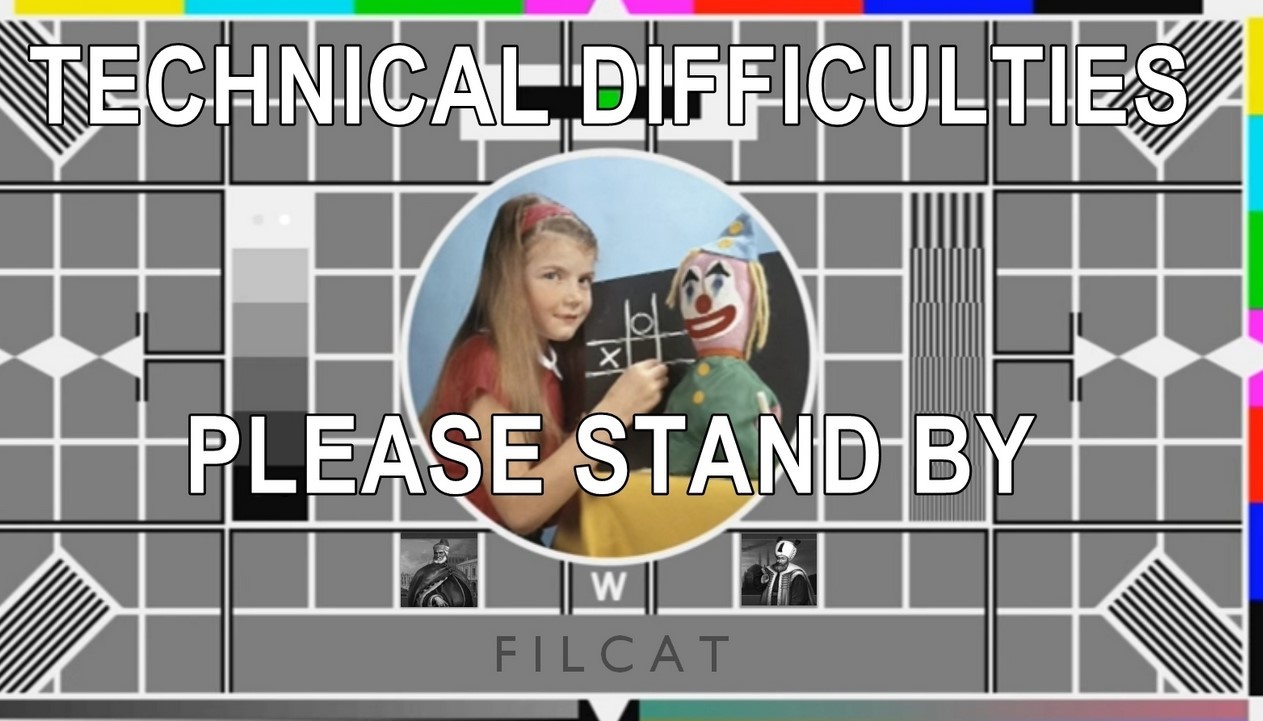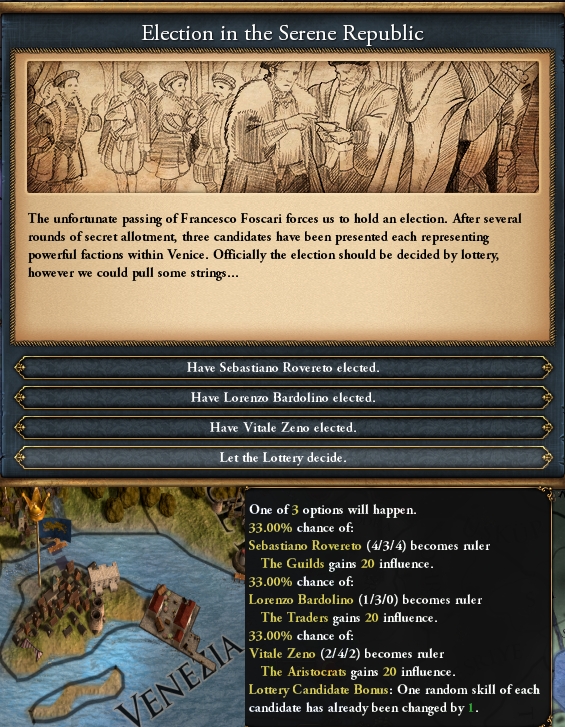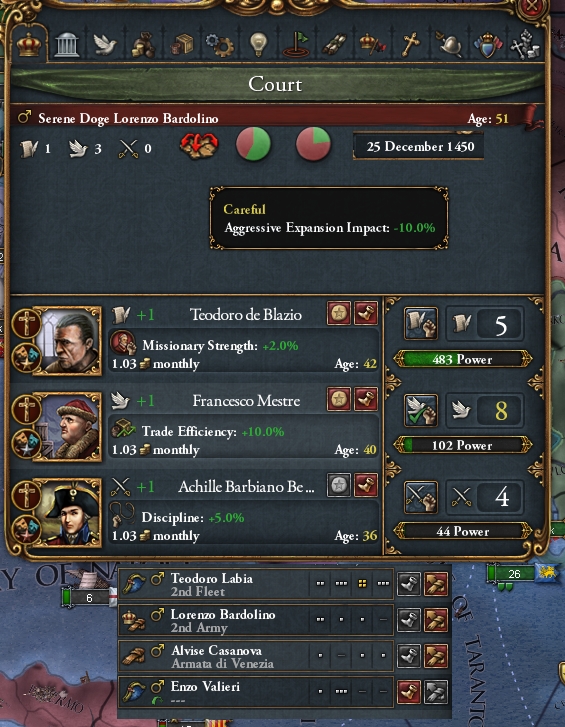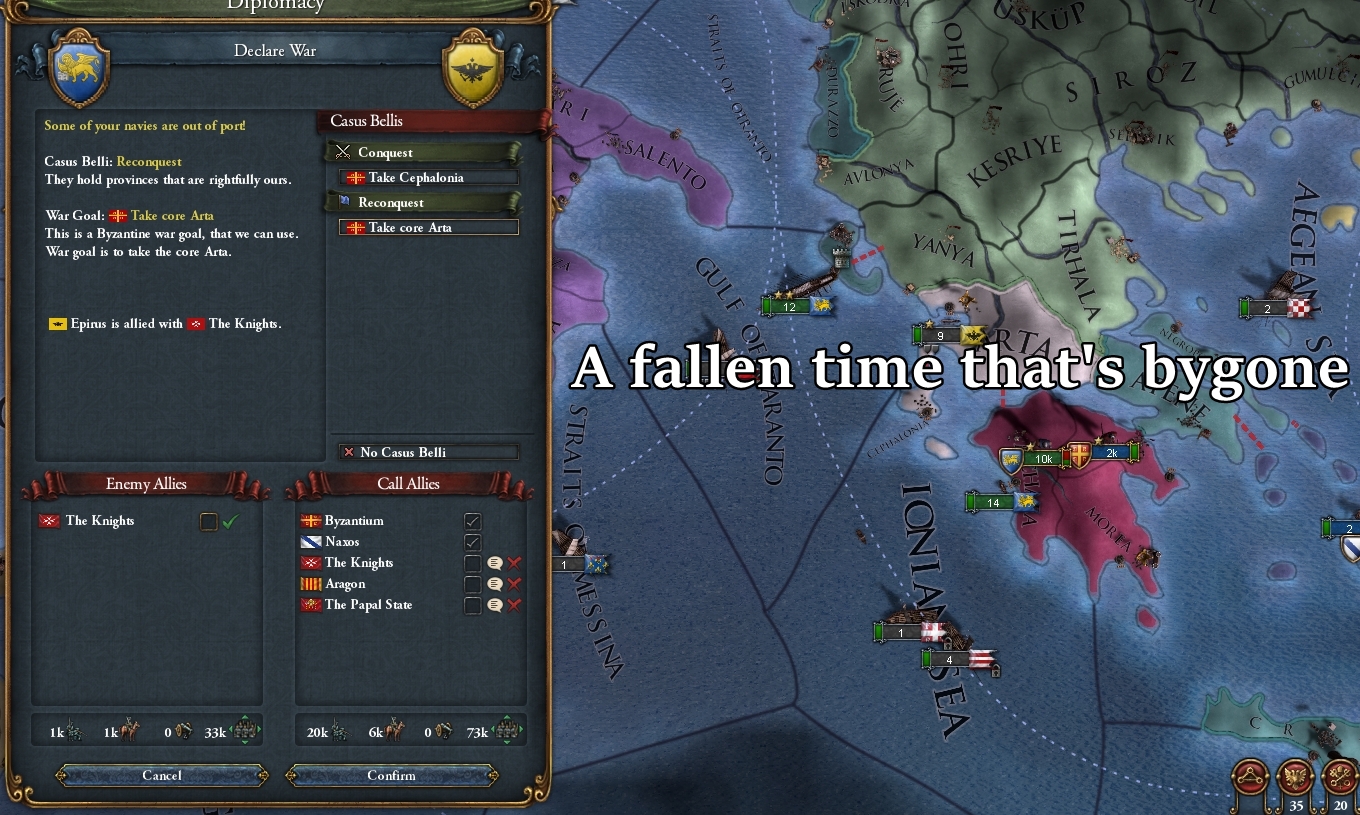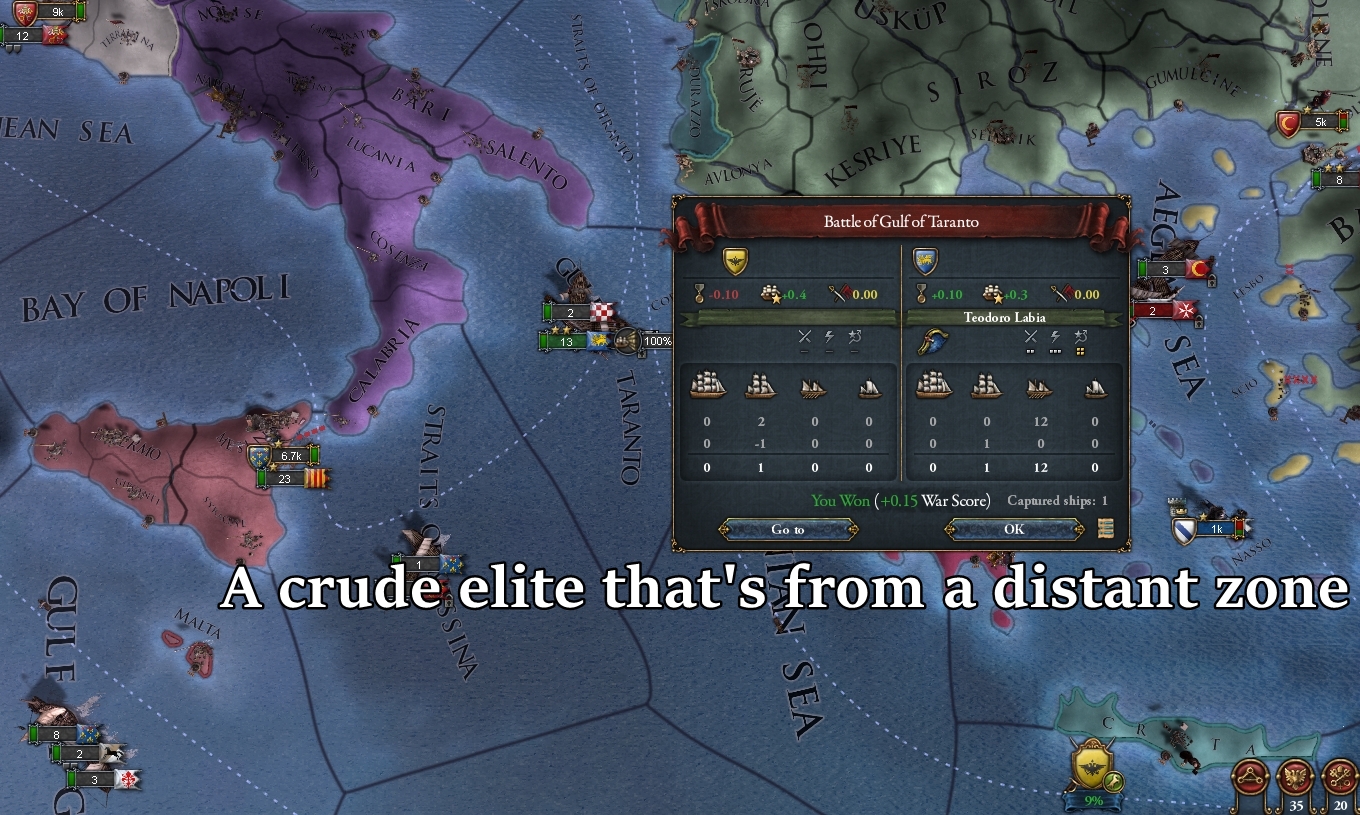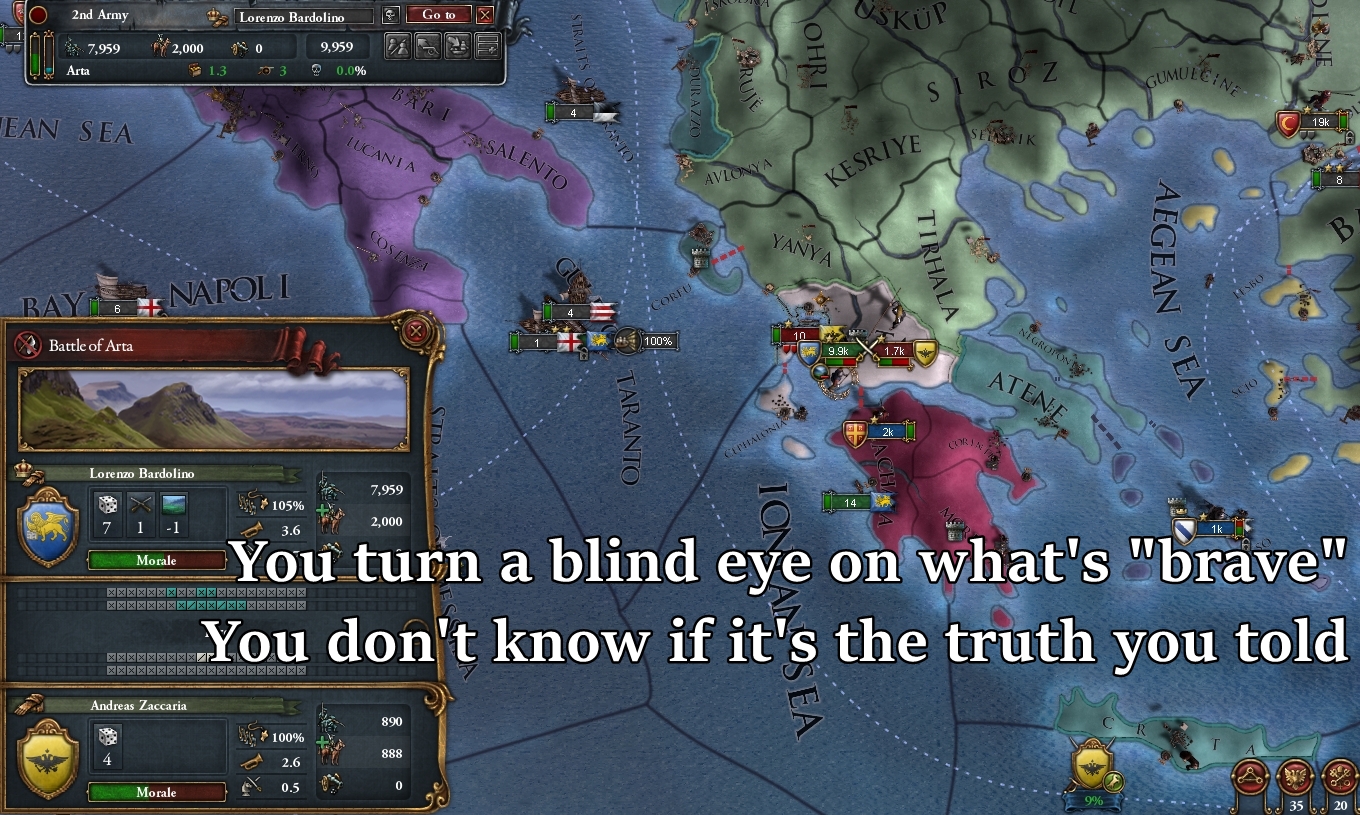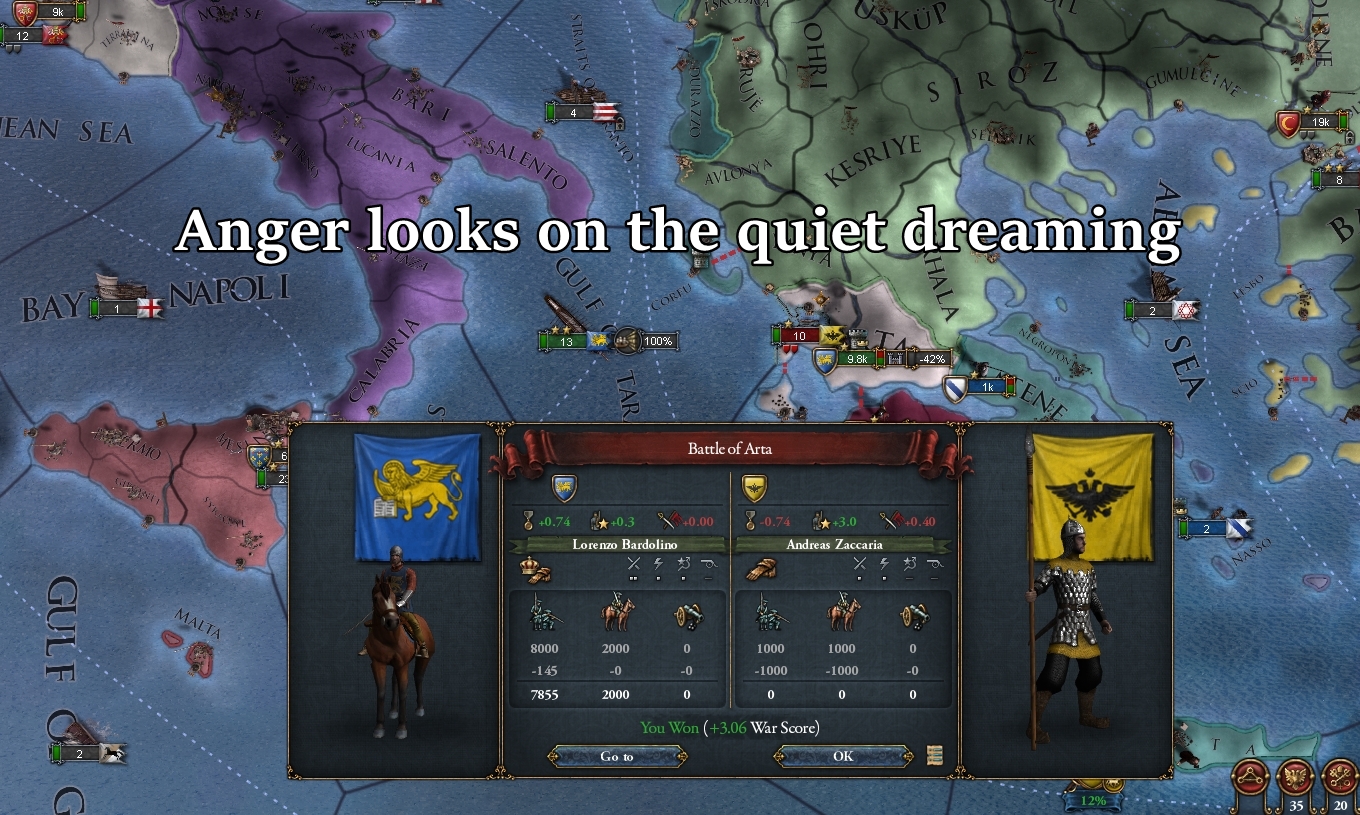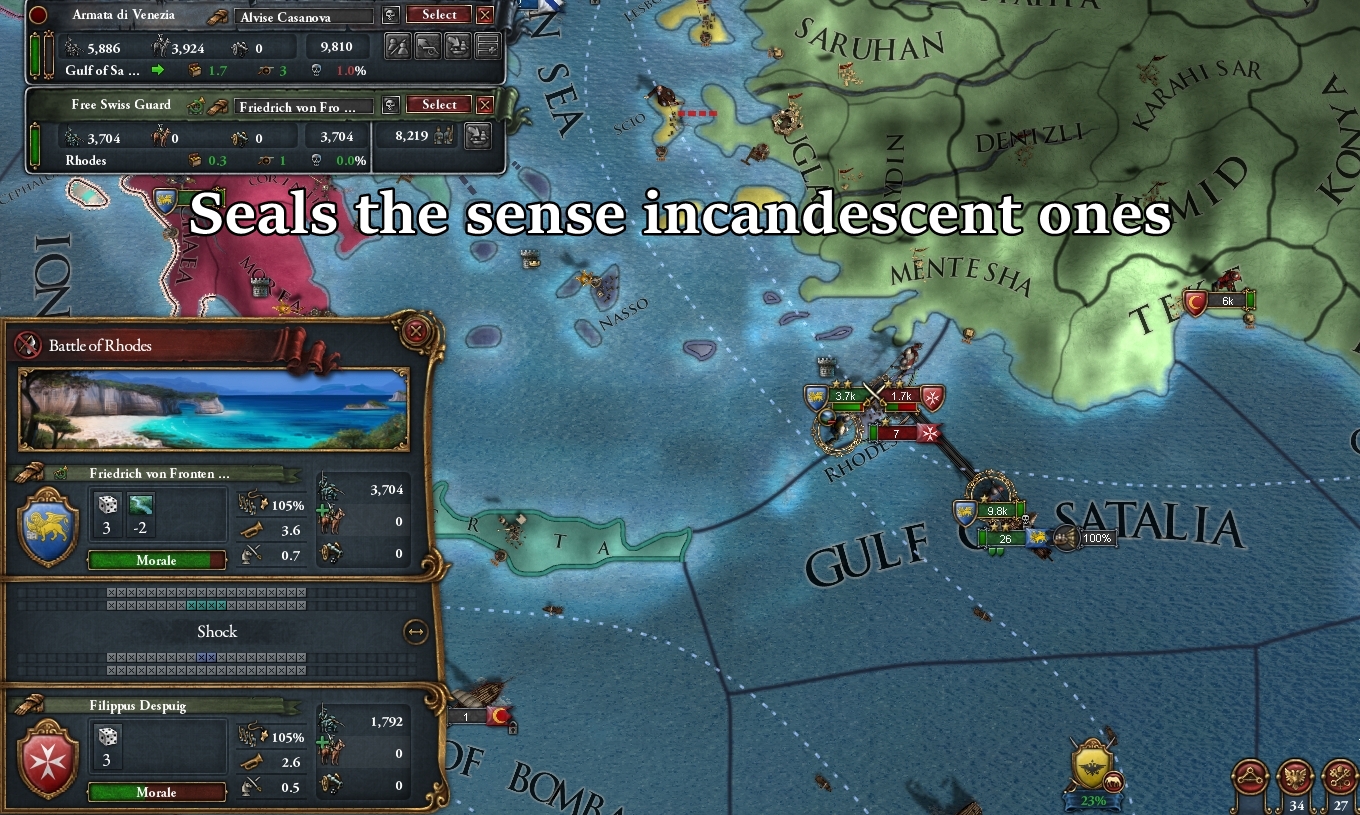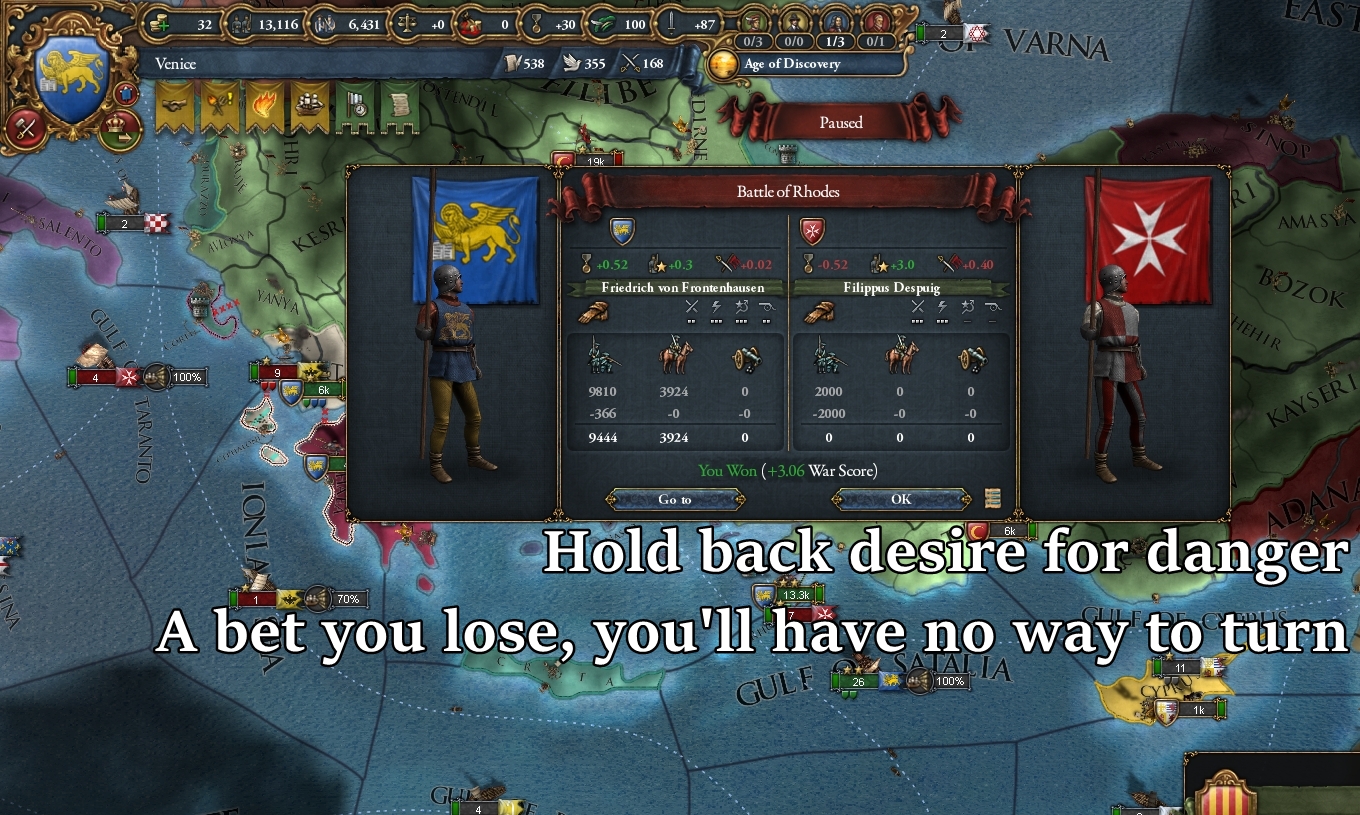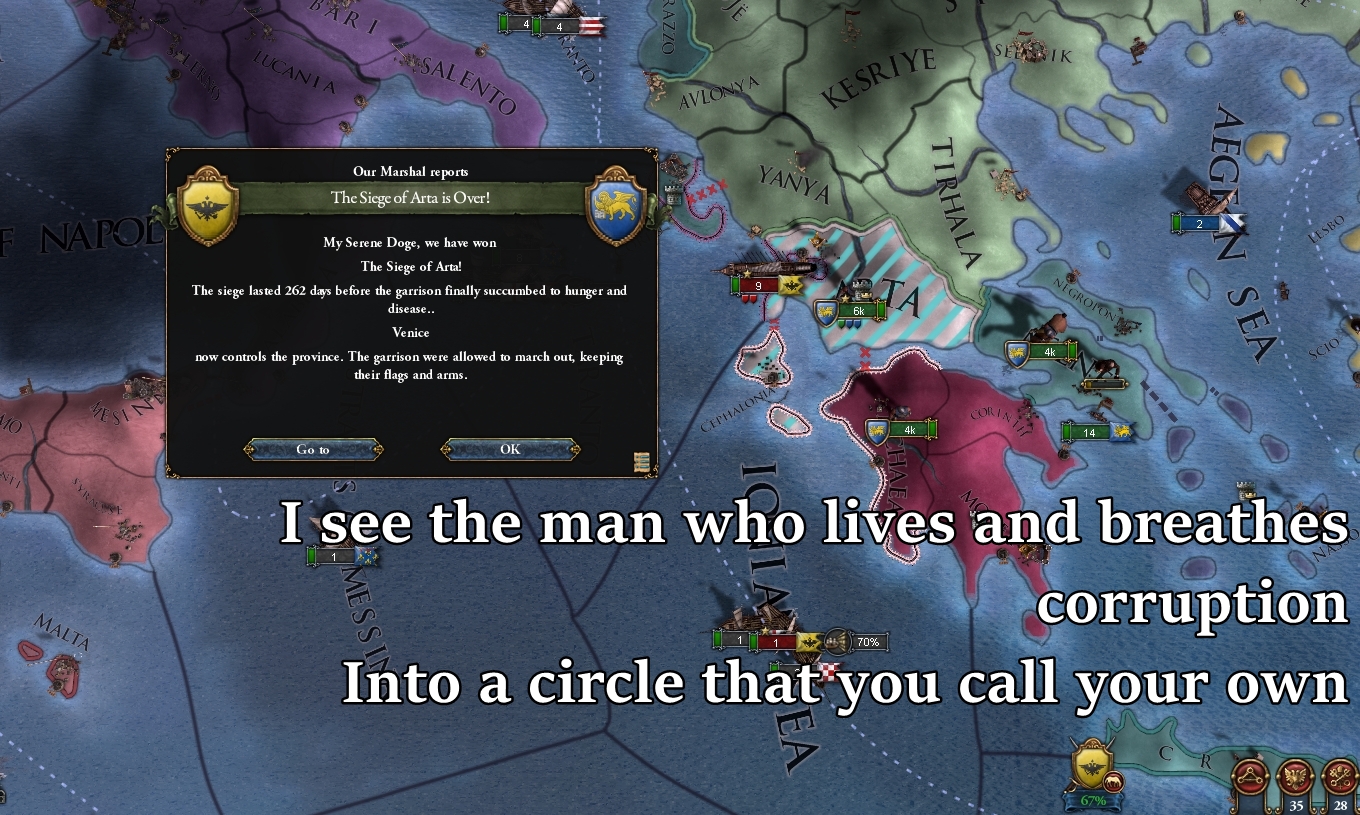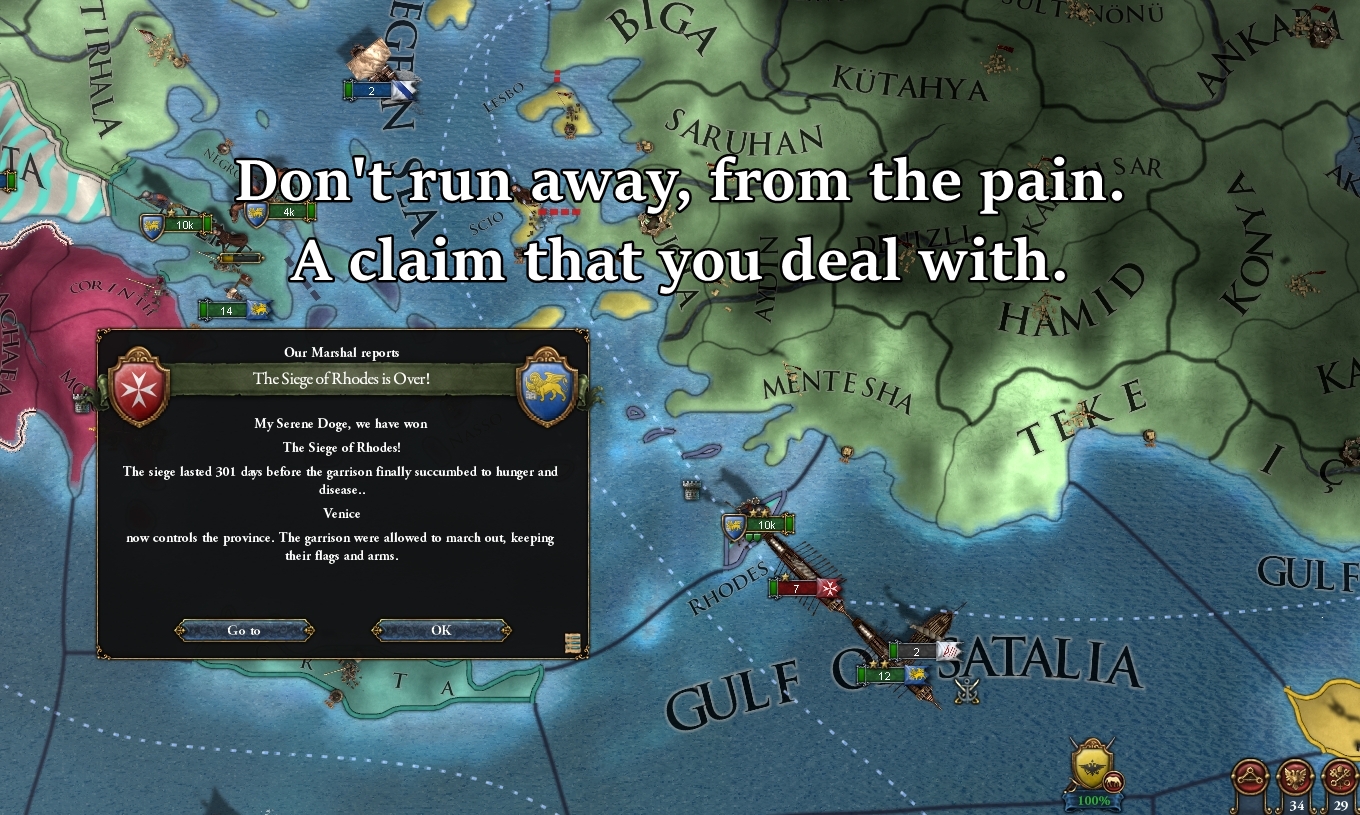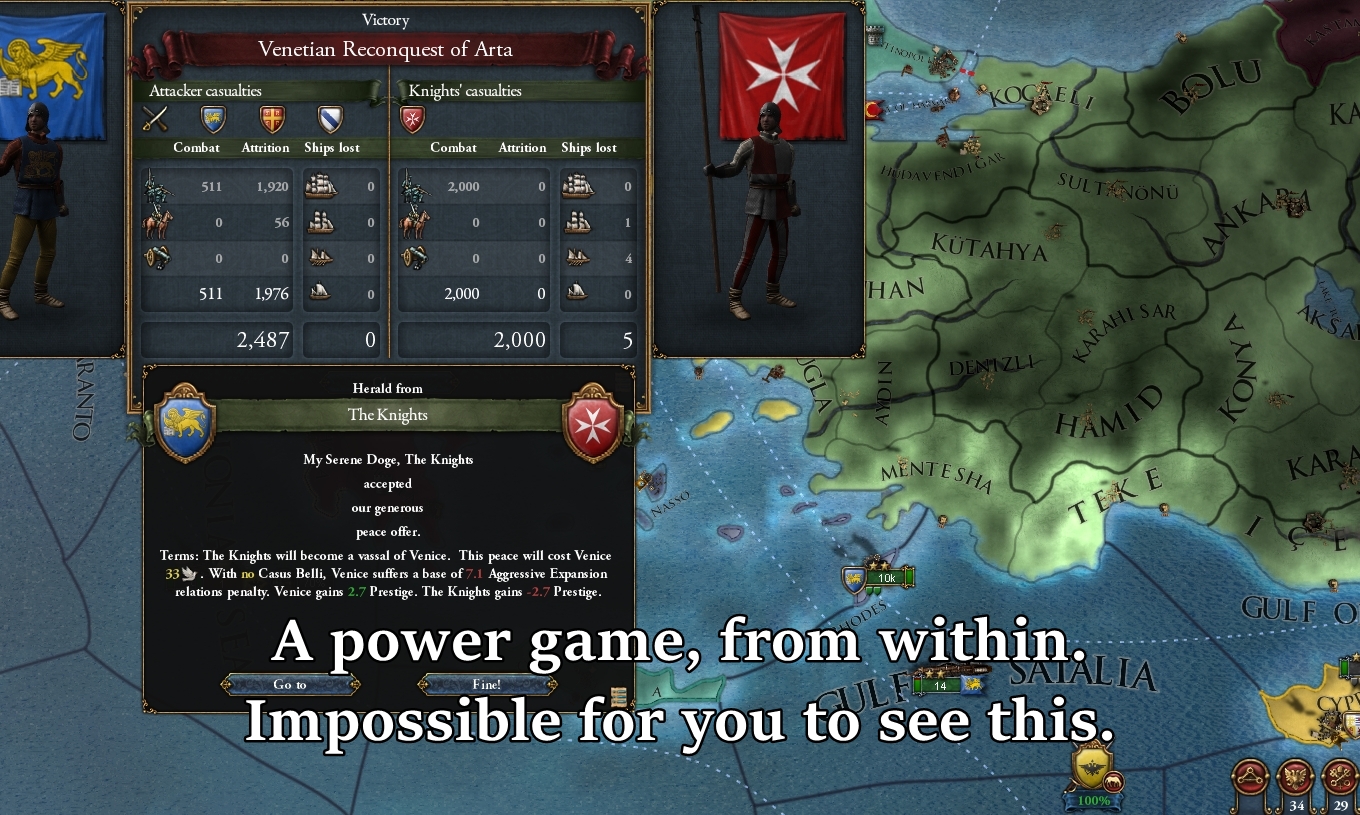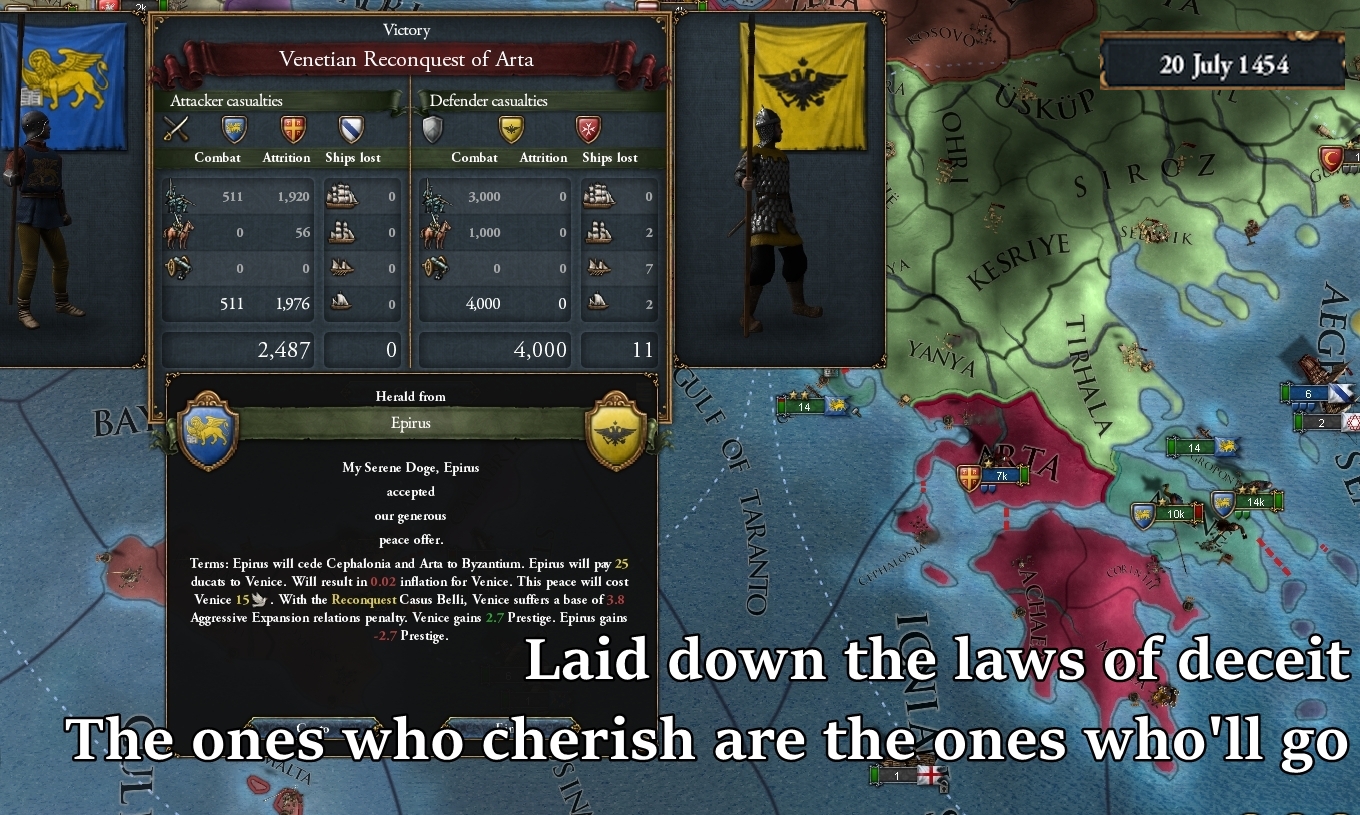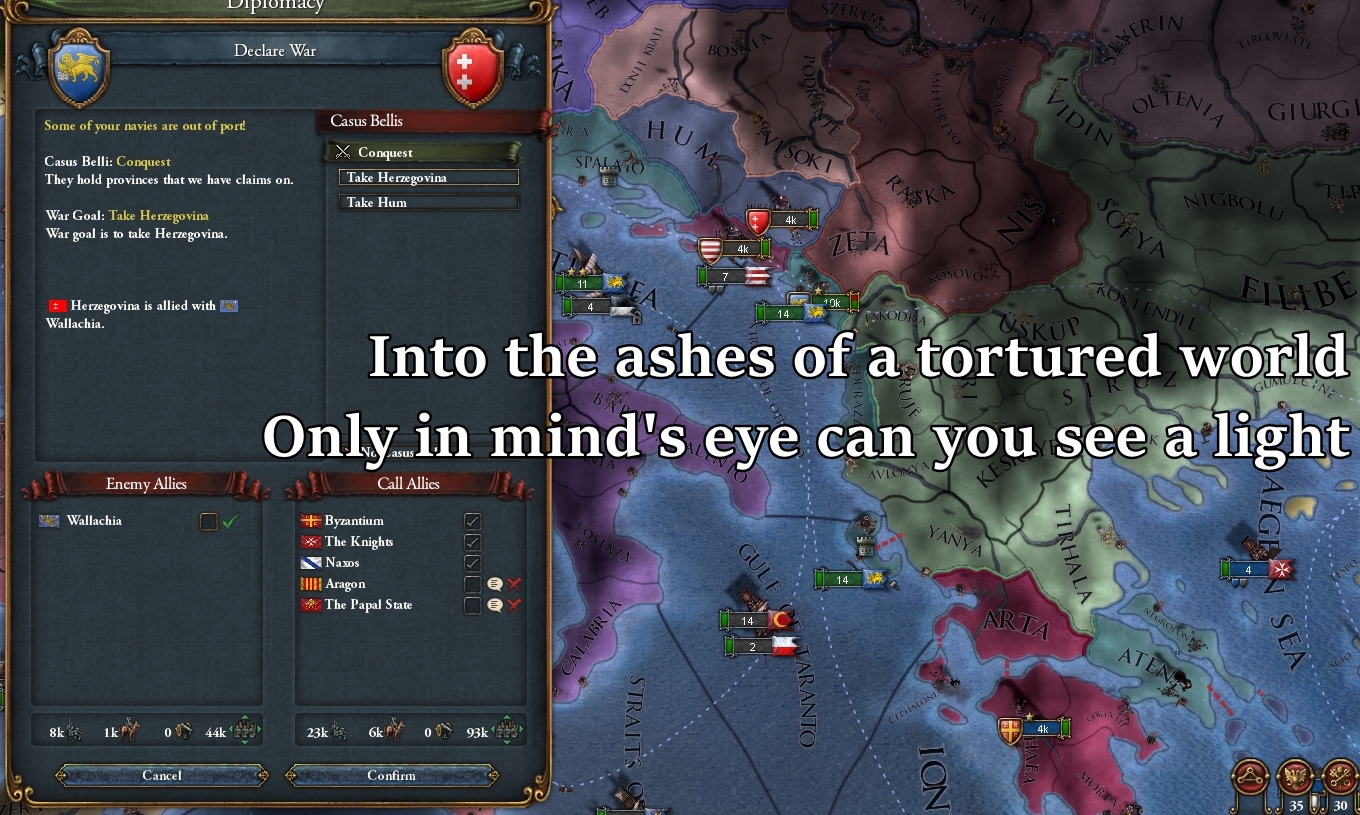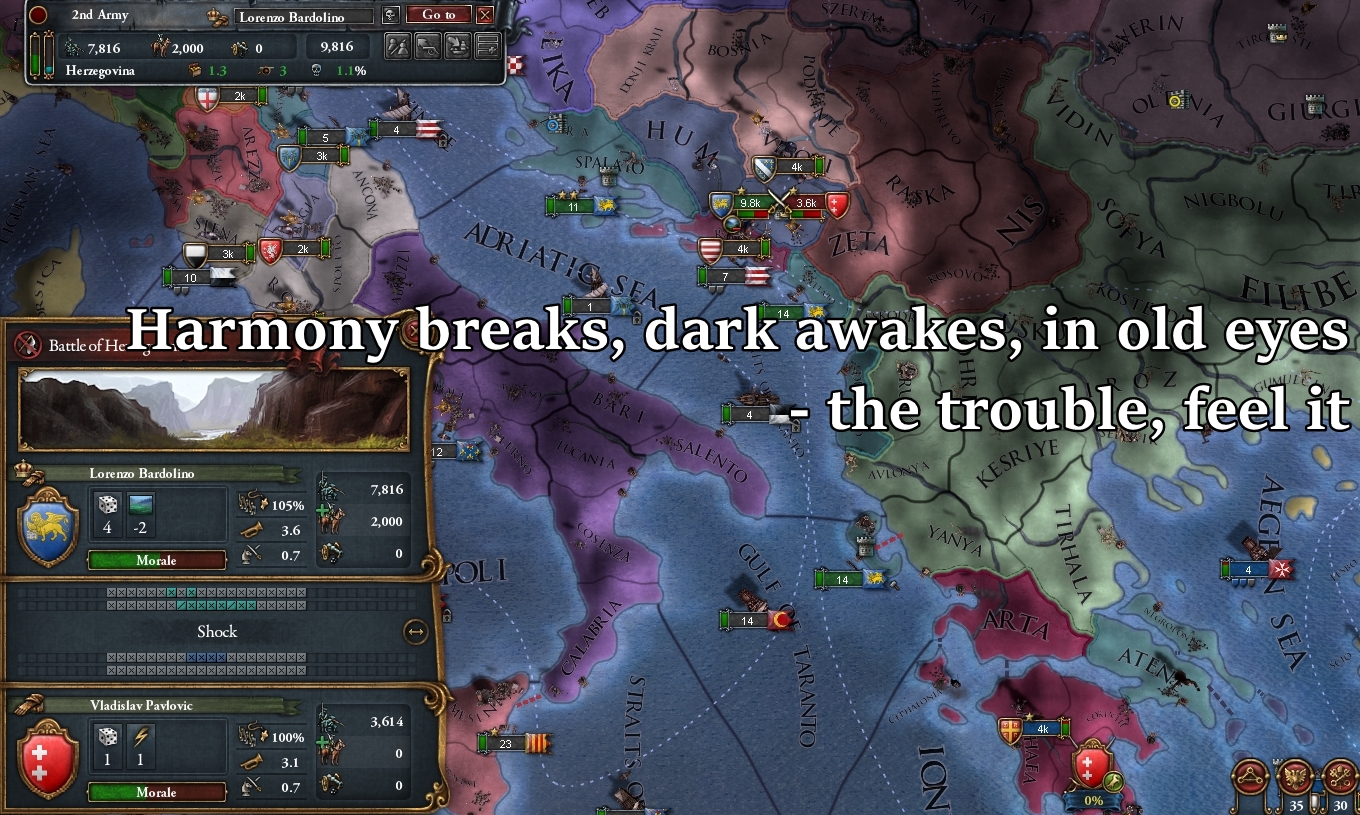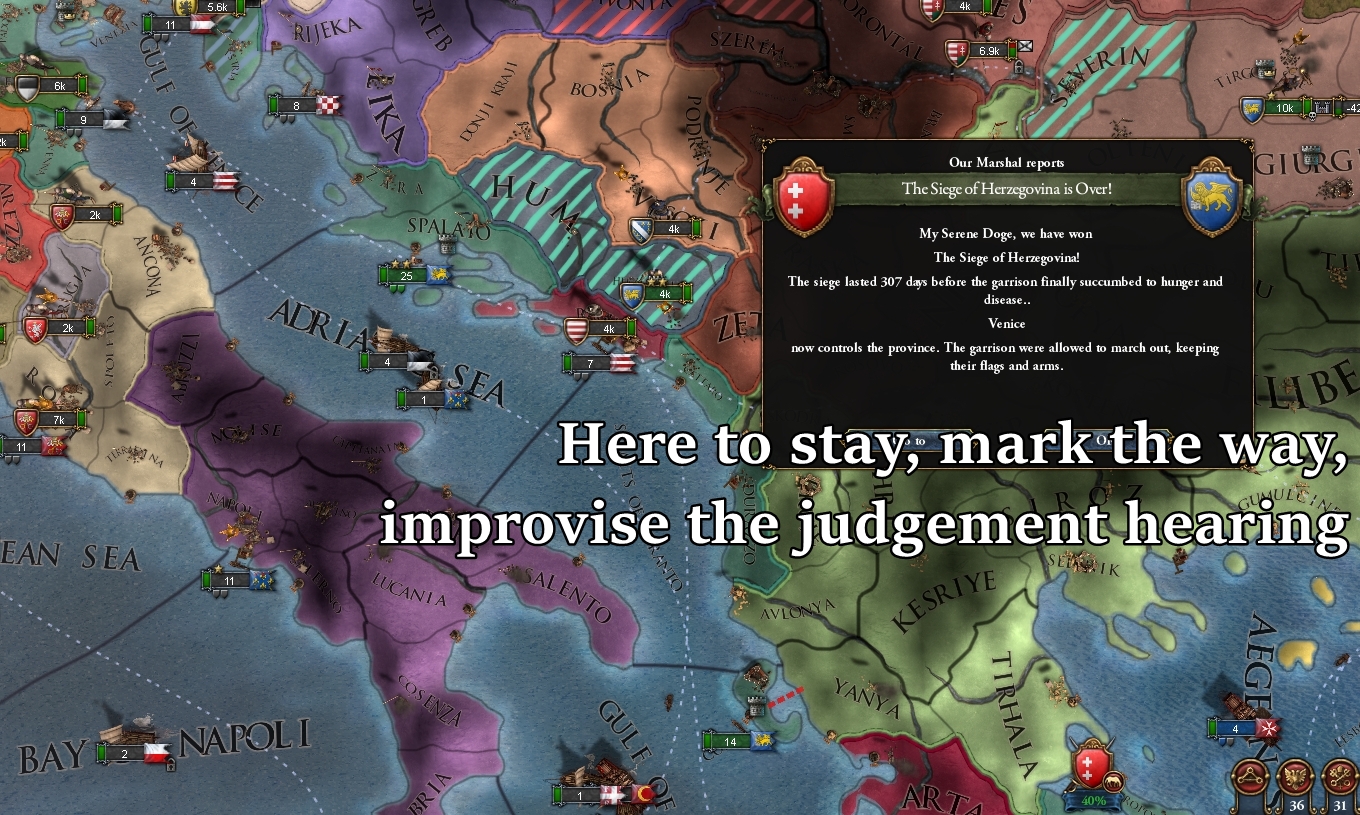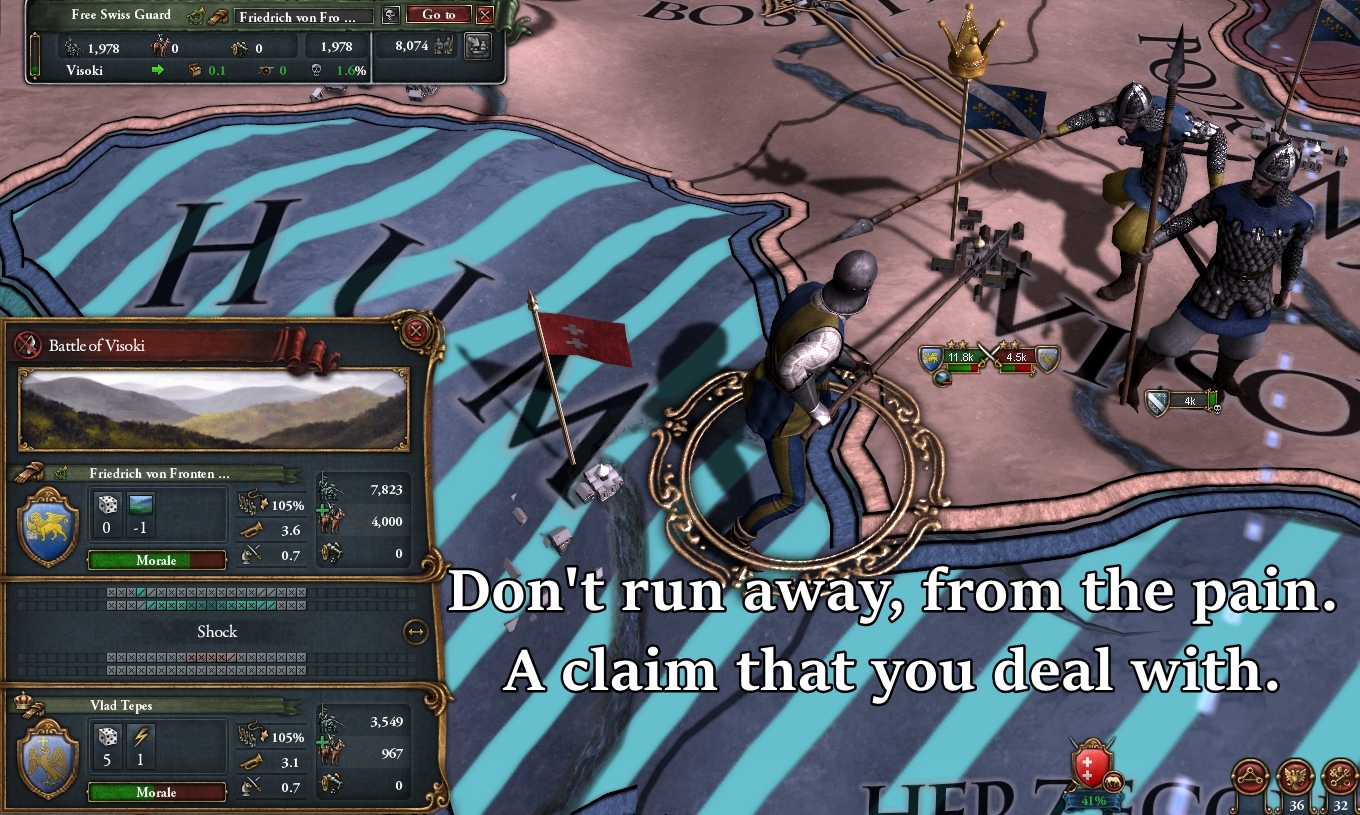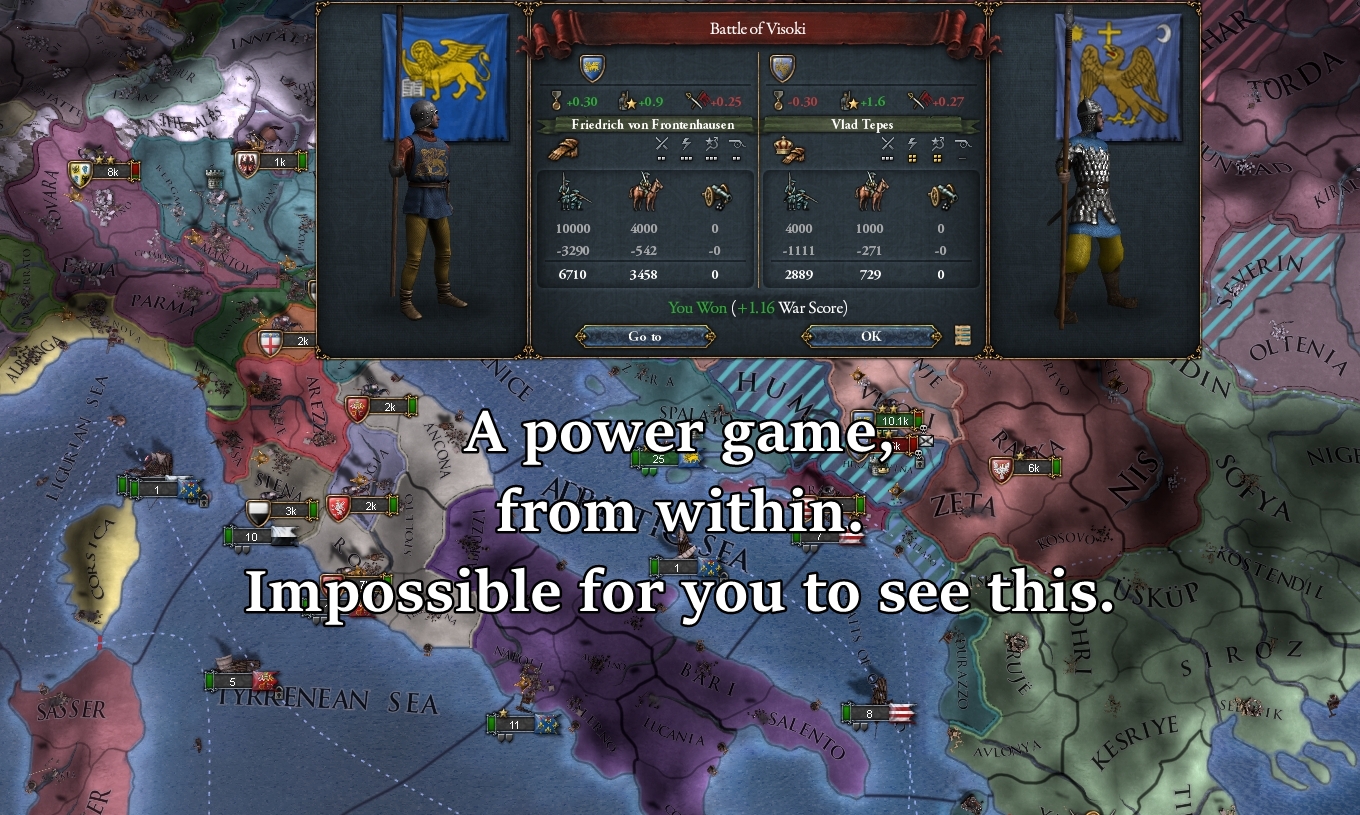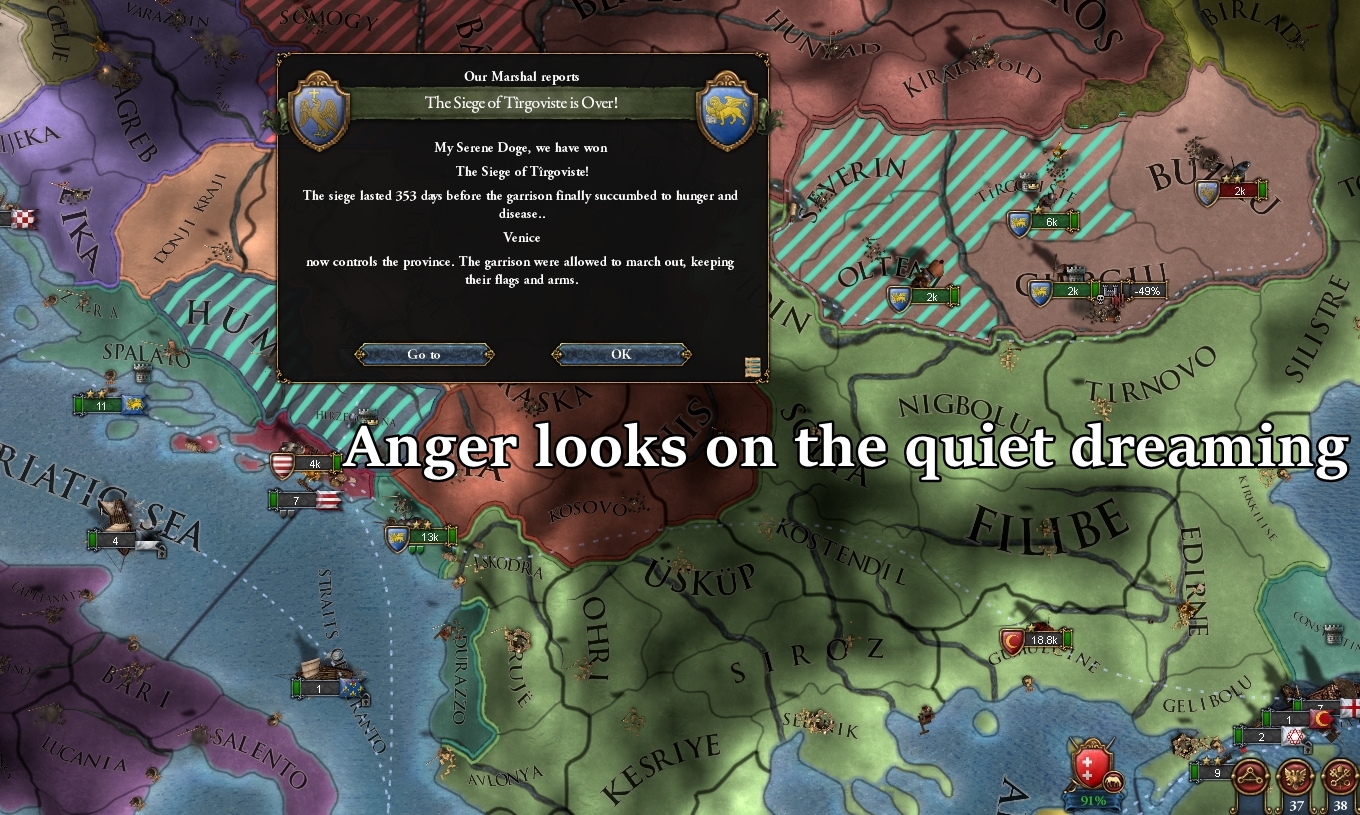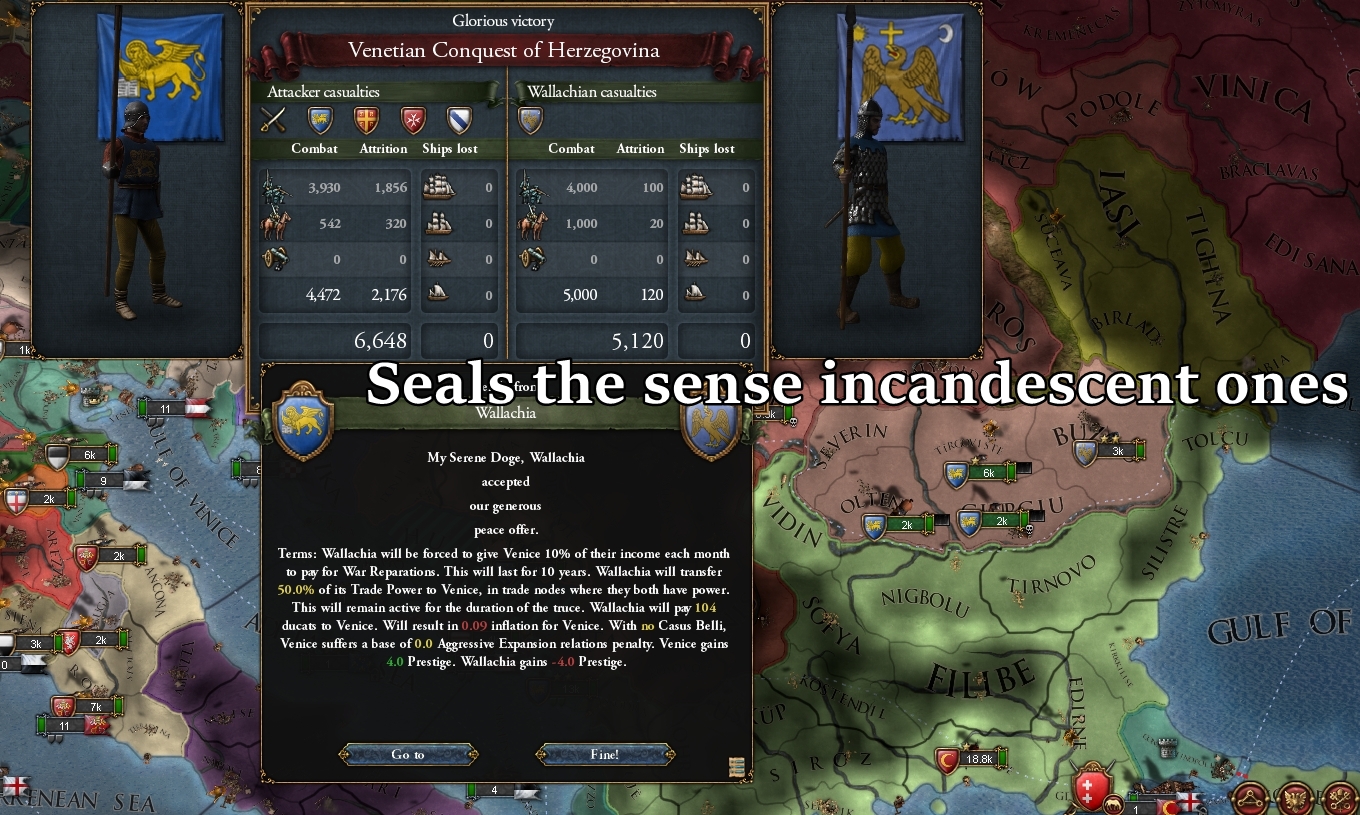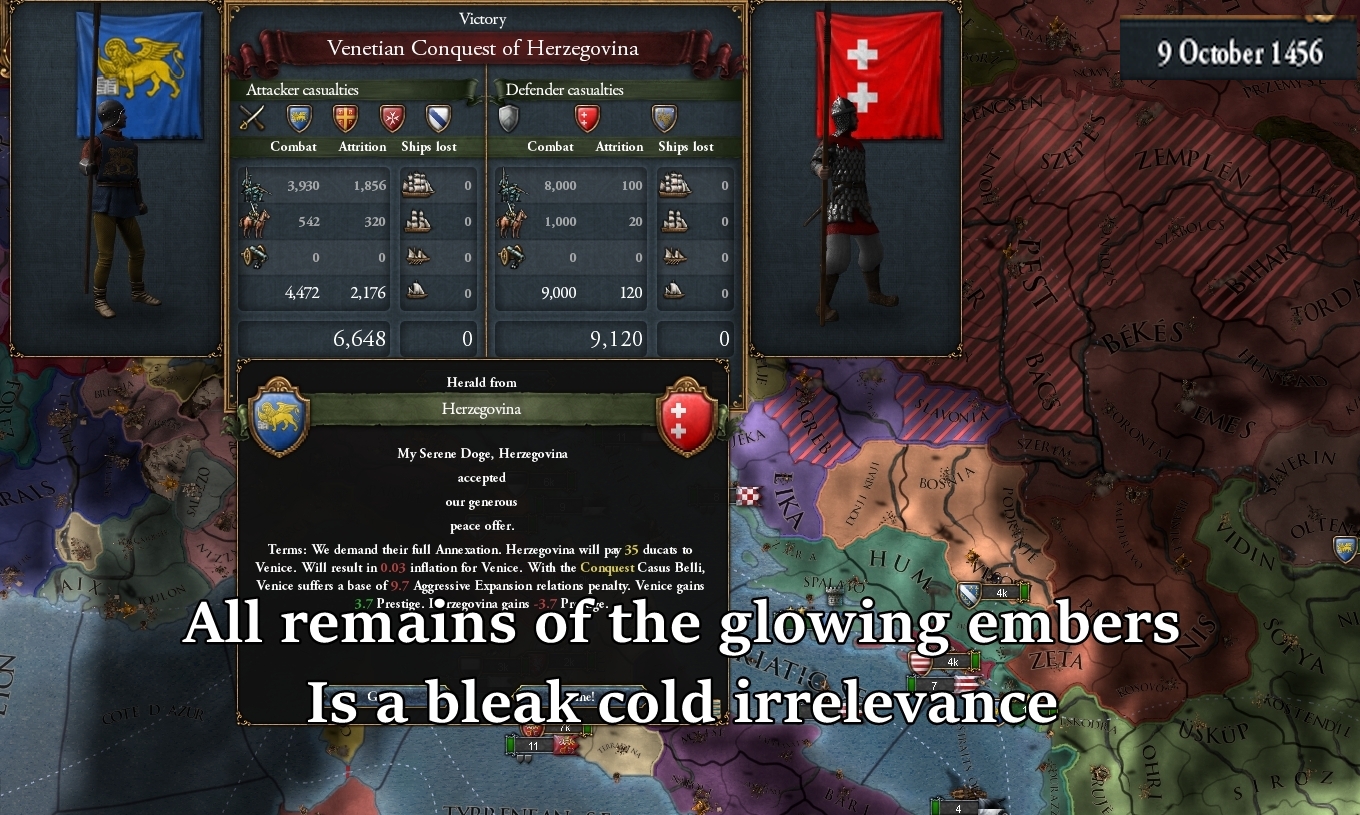Darkness, despite the rag they put over her head, she still detects it. The steps, slow, calculating, careful. A corridor, not frequently used, even the breathings echo slightly. Her hands, tied before but now free, yet two others hold her by the arms firmly. One, ahead of them, leading the way. One more, following behind, breathing heavily, but it was not a strenuous walk. A dissident, for the choices made.
A door, there must be light, faint rays through the fabric, the steps are relaxed. She is brought further as the door is shut, counting. Thirteen more steps, straight line. Turning around, loud noise of pulling a heavy object. She is directed to sit, still no words, then the two holding her move away, yet remaining in the room. The temperature, slightly different in the back than what she faces. The wall, it is close, behind her, must be at least four steps away. One is approaching, she clenches her fists, giving a strong breath out, the approach stops.
“I will only remove the hood, trust me,” the voice tries to calm her.
“It is easy to talk while the guns are pointing at me,” her reply follows in cold.
Silence overwhelms the room, then a distorted voice breaks the stalemate: “Remove the hood.”
The steps approach, she hears the quick breathing in short intervals. The rag is removed, and the light flashes, moments follow to adjust. A storage room, temperature regulated, light-glow is insufficient, focuses only on her vicinity. Remaining in the dark beyond, by their silhouettes she detects two men and one woman besides the man nearby; the three behind him taking off their night-eyes, holding their guns pointing at her, the light barely touches upon.
The distorted voice rises, loud, assertive, it is coming from a port-comm: “This was not supposed to happen. I am here to help you. They want to help you.” Surveying the room, she is in extreme disadvantage, yet remains calm, considering what she knows.
The one in charge is not in this room.
“You tied my hands and put a hood on my head. Whatever you tried to do, it did not seem so as you claim,” her words make them shiver, and she gazes upon them to identify. The one nearby,
must be the leader, he was able to calm the others when she regained herself. The man and the woman,
must be the followers, they did not defy his orders. The other man, holding his neck and throat, was the one she knocked down after realising they tied her hands. Yet there is the one speaking from outside, unknown. The leader, still holding the rag, after swallowing his fear: “You were unconscious when we found you. It was a… you fell. From a great height.”
“And yet you still tied me up,” her voice shrouds them in fear, she detects, but he gains his courage: “I freed your hands when you asked for it. But the hood was necessary – at least until we know we can trust you.”
“Her bloody code must’ve been bust,” the man holding his neck hisses, the remaining two giggle hesitantly. She gazes at him: “Those weapons are for you to feel safe, but not sufficient to stop me. In nine seconds I will invalidate the three of you,” now she hears them holding onto their guns in disbelief, yet remaining uneasy, but she shatters all their comfort, “and you; this time I will decapitate you.” She hears them snorting angrily, the pale light-glow moves momentarily, then she jumps from the crate she has been sitting on into the darkness.
In the tenth second, the three lay on the ground, of two are silent, of one is coughing, and the fourth is strangled by the throat between her arms, as he tries to scream, and she pushes her knee on his spine.
“Enough!” The distorted voice stops her before finishing what she vowed.
This was not supposed to happen.
She hesitates, yet she does not release the man.
This was not supposed to happen. Her dream was simple. Get the ticket, travel to the Earth, find her family.
This was not supposed to happen. It was her plan, her goal, her life. The fall.
This was not supposed to happen. The voyage was redirected to a different off-port. It was understandable. She contacted the local available sources. They provided her with the gun, but she had to wait.
This was not supposed to happen. Then she was brought to the admissions. The check.
This was not supposed to happen. She should have. She did have. Dreams.
This was not supposed to happen. It did not. She could not.
This was not supposed to happen. The blasts, three times. It should not. Dreams. She did. Have. Different. Now.
This was not supposed to happen.
The man tries his best to breathe but her arms press harder. He waves his arms violently, but no help comes, yet the voice shouts again: “That is enough!”
Dreams?
She releases him.
The man collapses breathing heavily, coughing loudly, and retching miserably. She does not wait but shouts back: “This was not supposed to happen!”
The silence grows in the dark storage room, illuminated by only a single light-glow from above, showing almost nothing but the crate she was sitting moments ago, and the shades of the four humans glimmer through, revealing small movements, aching and unable, grunting and overwhelmed.
“You will… let them live?” despite the distortion, the questioning wonder is obvious in the voice, “and you are… aware?” The lingering pause binds the time with the perceived infinity, yet it ends: “Then what happened at the off-port?” The distorted voice insists, and she understands she is not the only one.
“I will find out,” she sputters, “and I do not need your help.”
“You cannot make it out of the city by yourself. It is impossible,” the distorted voice keeps its authority, but she finally finds another source of dim light. Following the reflection on the lens, she identifies the weak light-ray above at the corner of the walls.
“Do not contact me unless I do,” she stares at the sur-cam.
“What were your orders?”
“I do not need any orders,” she fumes. “What are yours?”
No reply, a pause longer than before, she detects the doubt.
“I envy you,” the distorted voice finally speaks. A distinct noise is heard, the door opens, the corridor but now with the light from the ceiling-glows beyond reaches, the room is partially visible, the four humans laying on the ground, seeing her but not moving, knowing her but not acting.
“Do they know what you and I are?”
The distorted voice takes its time, yet replies: “Yes, but they follow their orders. As I do.”
She walks to the door. Thirteen steps. The distorted voice speaks again: “May I come with you?”
She stops, turns back, and looks at the humans, then turns to the sur-cam: “No,” and her eyes of jade flash, “not yet.”
*
Travelling to the precinct in the sky-ride through em-lane silences both into the night. Watching the sky-lanes of continuous flows, the streets, the alleys, the boulevards, the buildings of the Terra, the oblique, connected, irregular towers of the Upper Level, and the dark spires, the massive cloudlayers, the formidable ziggurats of the Third Plane, from the below up to the sky standing through all leaves both to themselves. Not even a word, only faint breaths, weak signals of the ride-terminal, soft taps of the shower residual.
Walking through the main hall brings him the memories he is trying to forget. Not colleagues, but few familiar faces, and those look at him in astonishment. Entering the hall of the dep-units, crossing through the gen-unit, enduring the voices cutting down briefly as the pair is seen, it is testing his limits. Then he sees Simone afar, in her office behind the glass walls with the sign of Gen-MCI, and she notices them, and him, and stands up, and gazes into his eyes, in fury gathered over the years.
He takes his eyes away, dismissing all, following the route to another dep-unit, disbanded years ago, with the faded sign of Night Specialists. Grimacing over the archaic title, waits for his former partner, then they both enter through the glass-door, heading towards the old office.
An officer he sees, sitting on the rows in front of the office, probably in his twenties, warm brown hair, eyes of hazel, anxious, and seeing them increases his discomfort. He slows before the door, Ramirez catches up, walks past him, nods at the officer, opens the door, its ceiling-glows are insufficient, almost illuminated by the lights of the two arch-terminals inside. He follows after taking a deep breath, enters the office, seeing another officer, sitting beside the main-desk, possibly in her twenties, chestnut hair, eyes of deep brown, curious, and seeing them increases her eagerness.
Behind the desk, he sees Robert, early fifties, dark black hair mixed with grey, sparse around the top, a beard to hide the effects of the age, yet inconsistent, eyes of yellow-blue, concerned, and seeing the both does not change his stance.
Ramirez steps aside, leaves his cane beside the wall, takes off his hat, leans on the wall-panel, serving as both a redundant desk filled with numerous papers and a cabinet filled with files, disks, memo-cards, and dossiers, incalculable by this time, and he looks at the top, finds a scrap paper among the pile, takes up, straightens, and begins to fold it, his eyes of grey-brown seldomly checking the others in the office.
He on the other hand sits on the other chair in front of the desk, looks at the commander, then grins in anger.
“Why am I here Robert?”
“Wow. From your tone I can tell you are accusing me of something,” his former colleague smiles.
“I know you helped them firing me.”
“No, the company encouraged you to retire. Can you blame them?”
“Well, then. I hope when you travel, your off-cruise goes into the sun.”
“Incredible. Even your insults include collateral damage, Darius. Hah! I had heard rumours of you taking the psych-eval after the retirement. Obviously not true, your attitude has not changed even a bit. Apparently you have not aged at all too.”
“To you, my attitude is clear: Fuck you.”
“Damning black hole. Although I could start a process for such disrespect to your supervisors, I will allow it.”
“Perks of being a commander, it suits you. Though you did not need the title before.”
Now the eyes of yellow-blue faintly shake, but triumphantly hold the line: “All right bastard. That is enough,” then he reaches for the drawer, takes a bottle of amorphous shape, two glasses, puts them on the desk, pours the whisky into both, then takes one glass for himself, and pushes the other one towards Darius.
“This is a bad one. We were not prepared. The company decided in an em-session and re-commissioned the unit. I volunteered for the spot, save your insults for me wanting a career unlike you. But this is a real bad one. Came out of nowhere. I need you.”
“No thank you for the whisky, I do not drink any more.”
The eyes of yellow-blue are wide open: “In the name of the solar system. You actually took the psych-eval? And you are doing what, following the programme? Which stage is this, crawling into garbage-holes for making amends?”
He takes a sip from his glass, then produces a file, synth-paper crackles, begins to read: “Dara – Dar-ra – I can’t read this shit name of yours. Darius Nowanqa, born 1 February 2172 – war baby, eh? Joins the Johannes-Koburn Corps in 2190, some action, some medals, honourable discharge in 2198, joins the Company of the LA Law-En, and since then only a Nightspec, not even a regular en-pol, until retirement as captain in 2211, and then – nothing. Eight years of it. Some shit jobs here and there, another shit job in… Mars? How was the weather? Anyway, it says here, Darius. You belong here. No matter what stage you are at, to be what? A better person? You? No, you have always been a Nightspec. And fuck, I need you for this one.”
I should not have returned. Darius stares at him blank, then his vigour brings him back to the office, then turns to look at the officer: “Who is she?”
Baffled, the eyes of yellow-blue blink in questions: “Some officer at the raid-unit, she was at the scene –”
Waiting for the two days, and today being called in, and waiting for more, then watching the turmoil of the dep-unit, she cuts in: “Sir my name is –” but she is not fast enough, and the other captain firmly speaks out: “Stop playing Robert, and tell him about the incident.”
Silence falls into the office, followed by the faint sounds of the folded paper, the soft crackles of the synth-paper, and the irregular beeps of the arch-terminal.
Robert remains silent, but smiling in defiance, almost villainous, and Darius loses his patience: “Liêm told me nothing, and you are talking about non-sense, and whatever it is, I am not interested. No more,” then he stands up, turns to the officer beside, “I do not care about who you are, but watch out for yourself,” then turns to his former partner at the wall-panel, “I wish you best of luck with him,” and walks to the door.
“You are the only one calling him that, you see, you know the operators, you know the job, damn, I am older than you and yet you are the more experienced one.”
“Because that is his name. Yes, Robert, even at your age, you can always learn something new, though that would be plenty for you.”
Eyes of yellow-blue narrow down now in anger: “Did you hear about the incident at the Off-port? Two days ago?”
Darius stops before the door, turns only his head back: “Yes, unlike you, I read – or rather I am bombarded with the news-stream, and I glanced upon it. So this is about that? Who is the victim? Some rich arsehole? Give the job to Simone. Or no, Yelena would be better. She and Liêm can actually work together, unless he wants to torture himself with constant criticism along the job,” and he turns, puts his hand on the handle.
“Why do you think I had to call you in, you fucking moron?”
Just before pulling the handle he stops. He saw only a few familiar faces, some of the young-recs back from the day, though by now they must be experienced, and mostly unknown ones. Simone is there, Ramirez has come for him, Robert has been appointed as the commander.
His brows are furrowed.
The company would have chosen her, not Robert. No, she would not have even called him in. He sharply looks at back: “Where is Yelena?”
“I told you it is bad, shitface. Hey, do you hear me? That is why I need you –”
He does not listen but looks at his former partner. The eyes of grey-brown are on the paper, folded into a simple shape. Ramirez slowly puts it on the desk of the wall-panel, a snake. He glances at the commander with disdain, then turns his eyes towards him, looking in great remorse.
He sees those eyes of grey-brown, confirming it. His hand squeezes the handle, electronic screams raise from the door, he violently opens it, with eyes burning in fury, crashed under knitted brows, fuming instead of breathing, walks out, disappears into the hall.
CHAPTER I - Part IV
He wakes up to the dawn. The sun fights through the horizon, he walks to the door, the two guards stand idle. Seeing him this early, they get ready in their positions, and he hisses: “Tell the servants to bring the water.” One of the guards runs, vanishing in the stairs.
He returns back, walks towards the large wooden table in front of the balcony. Its surface is buried under the papers, some dancing with the breeze but remain strong under the stones. He takes the dagger from his belt, leaves it on the table, and one more time looks at the papers, checking the orders and the notes and the briefs of the heralds from the yesterday. He takes up the notes from the barracks, and now he searches for the ones from the south. Finding it finally, he reads again: “The Swiss have been seen residing in Cattaro.” He checks other papers under the pile while still holding the note, and there it is: “The Armada is at the port of the Morea.” It was a fortune the Doge could not rally his men to his aid. Yet the location of them is not the reason for keeping him work deep into the night, waking him so early into the dawn, despite the victory.
The former Doge was looking at him as he was taken in chains from the court when the verdict was declared, he remembers once more.
After the abdication, the days of the trial followed, no more than a week. The Avogaria was divided, but the ratio was not in favour of the Doge. Bribing the officials to produce baseless claims for otherwise unlawful wars, lying about the administers, embezzling the funds, all accusations were announced through the list by the prosecutors, and the Doge sulked, surrounded by the defenders, and their answers were not enough for the judges, yet the response was mixed among them, after all the nobles had benefited greatly by conquering the city, capturing the Emperor, ending the empire. When the affair to save his son was exposed, the court entered into a heated debate as the son was later found dead, yet it was shown by the prosecution that to be an act of a rival, irrelevant to the trial, and the arguments of the defenders faded off. The case moved on to the death of the imperial envoy, and focused on the possible consequences. Many nobles from the Royal Palace had come to participate in the trial, and the defenders were unable to persuade, and the supporters were unable to oppose, and the judges ruled it a failure of the Doge to protect the subjects, be them nobles of the Republic, else guests from the Empire. The Forty told the prosecutors it was sufficient of the accusations, they adjourned to make the decision, and the Doge was still silent.
There remained no need to further proceed with the charges of conspiracy, and the actual reason that seemed the least possible way for the trial was buried under his far more obvious yet petty crimes. Sebastiano still counselled the Avogaria, that it would not have mattered, since no one has heard of where the members of the Circle were, those that could defend the Doge against such accusations, yet the prosecutors did not listen to him, as he anticipated, but they could not deny the scandals, as he expected, thus they proceeded with the easiest case to be presented. He still had more charges against Francesco Foscari, concerning his plans to invade the lands of the Toccos in Cephalonia, had it not worked through.
The Avogaria made their suggestions, the Forty took their advice, then the verdict was declared. The court formally notified the Ten for the punishment, and the Doge was sentenced to exile.
And he was looking at him when he was taken from the court.
Sebastiano realised only then, the peculiar situation he could not ignore, the strange feeling he could not dismiss, the oddity he could not name.
How could this man lead the fight on the Theodosian Walls. Focusing on the Doge, and he could not enjoy the victory he had, seeing the broken misery of his adversary, remembers while still holding the notes.
He hears the steps, running, reaching the door, his servant enters: “Noble Sebastiano, I am most ashamed! I did not see you be awake such early!”
“Water. I need to clean up.”
“As you wish, master. I will fetch fresh fruits and wine also.”
Five days it has been since the verdict, and the elections has continued until yesterday. By the night they must have finished, by this dawn they must have elected, by now he must have received the heralds. A little more to wait. The servants return, bringing the food and the wine, carrying the pot and the tub, pouring the water with great care, placing the woodpile for the fire. He takes three grapes, bites a pear and leaves it, grabs the wine cup and drinks a mouthful, and walks to the pot, washes his face in the cold, takes his clothes off, grabs the dagger, gets into the tub, leaves the dagger under water, cleans his arms and chest in the warm, then takes the dagger back, stands up, and waits for the servants to dry him up.
“No messenger of the night?”
“Not yet, master. I will send the men to the Council.”
The Great Council prepared the ballots, then they were taken outside, a boy chose thirty, the thirty chose nine, the nine chose forty, the forty chose twelve, the nine among them chose twenty-five, the twenty-five chose nine, the nine chose forty-five, the forty-five chose eleven, and they chose forty-one candidates. The forty-one assembled for the election by the night, and Sebastiano was still wake, working at his estate instead of waiting for the result, yet every note he was holding, reading, putting away, he was not seeing, but was thinking, reckoning, remembering, unable to overcome that day the verdict was declared, how the Doge looked at him. Until his servant urged him to rest before the night ended.
He knows he is one of the candidates, despite being a member of the Ten, that was the deal he made with the guilds, their support at the court required his obligation to serve, and he did not care much about it. Not that would matter, as he is perfectly capable of leading the Republic, and judging by the other candidates, particularly the cohort of Malipiero, he is the reasonable choice. If he is elected, then he has to deal with the Emperor in Vienna.
From one tyrant to another.
None of these bothers him, but that day; he is still unable to get past of that feeling. Now sitting at the table, the cold of the dawn hits him from the balcony, he gets his robe, and he sees a regiment marching in the streets, probably heading towards the docks, realises it is not a militia patrol but commissioned men-at-arms.
While his eyes of the amber are on the regiment outside, his mind is in the turmoil of the thoughts, he hears the voices approaching the door. He takes the cup of wine, walks to the fireplace, feels the dagger in his hand, and stands still, waiting for the door, and for what the new dawn will bring to him. The voices get louder, and their approach resembles a struggle, and the steps are heard clearer, and the guards are yelling, but then he notices his servant shouting: “Noble Zeno, you are not invited! Guards! Hold that man!”
He walks to the door, opens it, and sees the scene, the guest of the dawn is held by the guards off, he clears his throat: “Release him.” The guards step back, and the man scowls at them, at him, at the servant, then enters the chambers, and the servant stands by the door.
“Master, I told Noble Zeno to wait –”
“I will allow the guest. What do the men at the Council say?”
“I was about to –”
The guest cuts in, yelling: “Leave us, now!”
The servant looks at Sebastiano worried, as he shuts the door on him. The guest takes a pastry, bites off, then spits it on the floor. He takes a cup, pours wine, drinks it all, then throws the cup again on the floor, the noise of the crash dissipates with the cracks of the woods in the fire.
“And what do I owe you for this pleasant surprise, Vitale?”
The guest continues to scowl: “You are a fool.”
Sebastiano walks to the table, dismissing the guest, casually checks the notes indifferent, drinks from his cup, and only then glances at him: “So you are not elected.”
“That was not what we agreed upon.”
“I promised you a fair election. The only way. Even the bastards in Florence accept ours is the fairest.”
“And what did you promise to your dog, you shit-filled fool? Do you think that will work, a doge as your puppet?”
The eyes of the amber now stare at the guest, the brows slowly furrow, then knit in anger: “What are you saying?”
“Oh. You have not heard it,” the guest enjoys the moment, “so you did not plan for this. Splendid.”
“What? What is it?”
“It was already done before the night. I do not know how you eliminated that bastard Malipiero, but you did not clean up your own shit. You doomed us.”
It only occurs to Sebastiano then.
My promise.
My dog.
Puppet.
Not my plan. The eyes of the amber are shaking, the anger morphs into the fury, the fists clench in the wrath, he shouts: “Niccolò!” The servant enters the chambers, alarmed.
“What did the men say?”
The servant is agitated, regretfully stutters: “Master I was about to say – that they – the Council has – your acquaintance –”
The eyes of the amber are erupting in rage, he runs to the door, the guards see him and follow, the servant shouts, the guest sneers from behind: “You doomed us Sebastiano. I hope it was worth it, I hope you drown in that shit that you wanted to achieve!”
He runs through the streets, the day is awakening, the guards are trying to keep up with him. He stops briefly, thinks for the moment, breathes the morning cold, then remembers the regiment from earlier before, heads towards the main docks. The longer he runs, the more crowded it gets, the oarsmen, the men-at-arms, the captains, and reaching beyond the wares and the shipmasters and the barracks, there it is, at one of the wharfs, the man stands in front of the guards.
He rushes to the lot, gets past the crowd, arrives in front of the man, but he is not quick as in his youth, the fifty-eight years show its signs, and they apprehend him before reaching the man, and his own guards ready their polearms, draw their swords, one pulls the crossbow, and all stop uneasy at once, as he roars: “You!”
He gazes at the man, and only then looks around, seeing they are outnumbered. He is held by two, his own guards are overwhelmed, their weapons are taken away, and now he is by himself with the man at the wharf.
Sebastiano still remembers the day of the verdict, yet he is still unable to name what it was disturbing him. But when his eyes of the amber meet Lorenzo, he is frozen.
“You!… You were!…”
The words of Lorenzo are cruel: “I was a cheap bargain, were I not? Only a couple of supporters at the Great Council. Calm yourself, Sebastiano,” and the cruelty is consolidated with a smile, “and you should address me as Your Most Serene Doge.”
“You… betrayed…”
“I did no such deed. It is for the Republic, is it not what you say?”
He does not speak any more, loses all his strength, leaves himself at the hands of the two holding him.
“You are able, Sebastiano. After all, you rallied everyone against the unlawful wars of Foscari. Cunning, I must say; that would also help you in the elections. But I promised them a better one. Not wars of misery, but victories of glory.”
He only gulps in silence.
“I must thank you for letting me carry the heralds for the locations of the men. It is imperative in the matters of war.”
He only blinks in fear.
“Though I do not know how you managed to persuade the Grand Master against Foscari, but in any way he will suffer the consequences for choosing your side. Along with the Toccos, and even the Herceg of Hum. Impressive work, yours is. Yet I have the support of a patrician of the Republic. He had once held a title you may know as the Emperor of the Romans.”
He only shudders in cold.
“But you are able, true. I will let you live.”
Lorenzo is looking at him.
His eyes are growing in the flash of the darkness, reaching and spreading, covering and surrounding, enveloping and devouring, all the thoughts, all the memories, all the hopes of him.
After they leave them at the wharf and make for the galleys at the bay, his guards approach him, helping him to stand up, carefully walking in the streets, slowly escorting him back to his villa, and his eyes of the amber are wide in the oblivion, staring at the nothingness, focusing into the never-ending deeps of the defeat.
In front of the estate, his servant rushes to meet, taking him from the guards, telling him the departure of his guest in the morning, and he recovers from the darkness he has been into.
“Tell the men to get the ship ready.”
The servant nods promptly, rushes into the corridors as he is back to his chambers, back to his thoughts, back to his reckoning. Sebastiano remembers, once again, the day of the verdict.
Those eyes.
[*] Ember's Fire, from the album Icon by Paradise Lost (1993)
Edit 08.03.2025: Corrected grammatical, repetition mistakes and the images; changed a character name.

